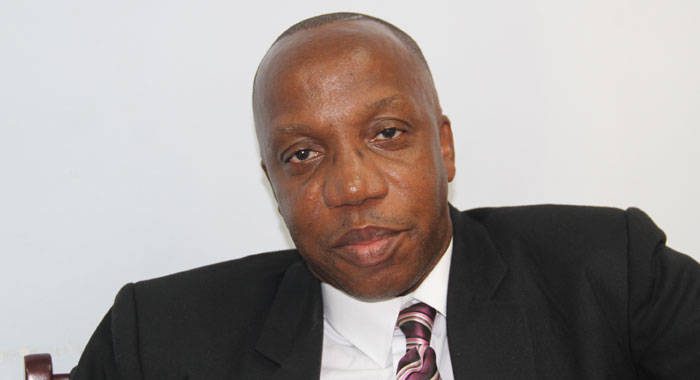Senior Magistrate Rickie Burnett says there is nothing wrong with the court inviting the prosecution to address it before sentencing a convicted person.
“When I sit here, I believe that a part of my responsibility is to educate as well,” Burnett said at the Kingstown Magistrate’s Court in Friday during the sentencing hearing of an 84-year-old man who had pleaded guilty one week earlier to possession of unlicensed firearms and ammunition.
Reading handwritten notes, Burnett said that from time to time he sees queries when he asks the prosecutor to address him on sentencing.
The magistrate said that, in his opinion, the prosecution has an important role, just as the defence, to play in sentencing.
“So, there is nothing wrong with the court calling on the prosecutor to address it on issue of sentencing,” he said.
He said that in this regard, the prosecution’s role is limited to presenting the relevant material to the court and ensuring the court is aware of the maximum and minimum of sentence for the particular crime.
“It is up to the court to decide whether a custodial sentence is suitable,” the senior magistrate said.
“That remains a judicial matter.”
Burnett said that whether or not the accused person is represented, sentencing is the purview of court.
“It belongs to me. I accept or reject any submission.”
In the extant case, during submission one week earlier, Senior Prosecutor Adolphus Delplesche had said he was not looking for a custodial sentence for Hermus Patrick, 84, of Layou, who had pleaded guilty to possession of an unlicensed .38 revolver and 115 rounds of .38 and .25 ammunition.
For the firearm, Burnett sentenced Patrick, a veteran of the US and British armed forces, to 12 months in prison suspended for 12 months.
For the 115 rounds of ammunition, he fined Patrick EC$12,000 to be paid by Dec. 31, 2019 or 12 months in prison.







DEFENCE PLEA IN MITIGATION – PROSECUTORIAL PLEA IN AGGRAVATION
Professionally speaking, never heard a prosecutor being called upon to make a ‘…Sentencing Plea’ on behalf of the State. Not in Common law jurisdictions.
Prosecution is prosecution. No role in ‘…Pleas in Mitigation or …Pleas of Aggravation.’
Something seemed ‘…fundamentally wrong’ with the prosecutor being called upon to address on sentencing after the defence attorney had made his plea.
If it is not written that ‘…nothing is legally wrong’ to call upon a prosecutor to address on sentencing, then an adjudicator shall show ‘…where it is legally right for him to do so.’
A defence attorney always has the right of a ‘…Plea in Mitigation’ on behalf of his client.
Such plea is for leniency to be shown to his client ‘…whose fate lies in the hands of the Magistrate.’ That determination and sole discretion reside only with the ‘…trial Magistrate.’
It defies logic and have ‘…serious appellate implications for severity of sentence’ and/or ‘…miscarriage of justice.’
At no point, shall an adjudicator call upon the prosecutor to address him on the ‘…severity or leniency, of sentence to be imposed upon a defendant who is found guilty or pleads guilty.
Bad for Criminal Appeal and good ground for ‘…Severity of sentence,’ based upon the Court’s invitation or solicitation for;
(i) …Prosecutorial advice;
(ii) …Prosecutorial recommendation; or
(iii) …Prosecutorial suggestion.
The fundamental question is, ‘…On whose behalf would the prosecutor make his plea?
Certainly not the defendant whose attorney would have already done so.
Then why call upon a prosecutor to address the Court on sentencing.
An adjudicator may call upon a defence attorney and prosecutor to address him on the ‘…totality of the evidence’ (prosecution/defence) adduced by both sides. He shall satisfy himself that the prosecution has proved its case beyond reasonable doubt.
This has always been the ‘DUTY’ of the prosecution, and ‘NOT’ a defendant to prove his/her innocence.
For ‘…He who asserts, must prove.’ That has been the universal legal maxim.